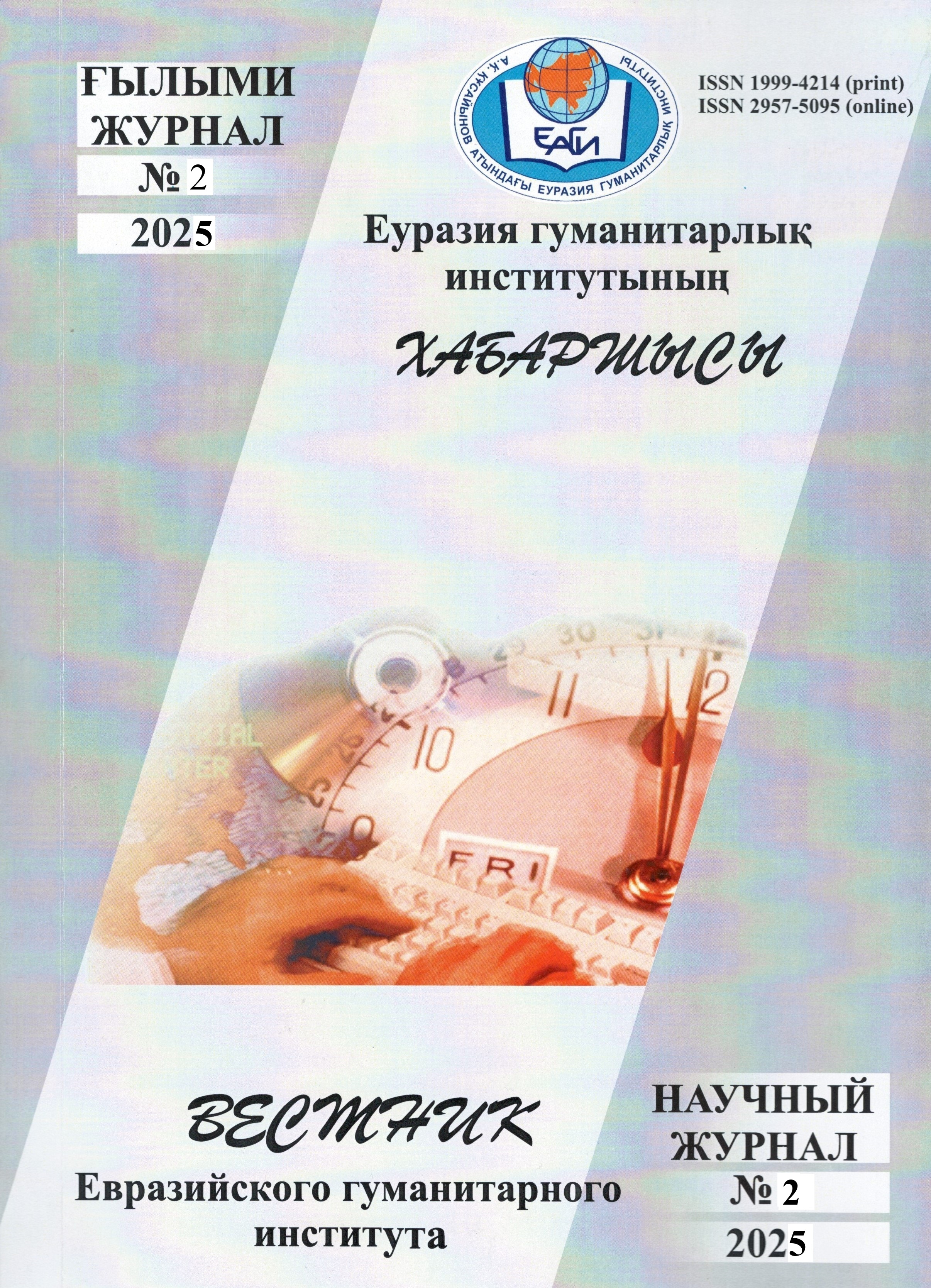THE ROLE OF REFLECTION IN THE FORMATION OF STUDENT’S LINGUISTIC PERSONALITY
DOI:
https://doi.org/10.55808/1999-4214.2025-2.17Keywords:
reflection, reflective activity, written competence, language, linguistic personality of the studentAbstract
In the context of intensification of educational processes and increasing requirements for the quality of training specialists, the problem of forming the linguistic personality of students is becoming especially relevant. Reflection is understood as the subject's ability to self-observation, analysis, meaning and evaluation of natural thoughts, actions and speech reasons aimed at achieving a communicative goal. The purpose of the study is to identify reflexive processes in the transformation of the linguistic personality of students and to determine effective pedagogical conditions that contribute to the development of these abilities of the student in the educational process. This process is considered as an integral component of educational activity, contributing to the formation of a conscious and motivated attitude to learning. It is noted that the development of reflexive skills helps students to understand their own educational goals, evaluate results, identify difficulties and find effective strategies to overcome them. The article also emphasizes the need to create pedagogical conditions that stimulate students' reflexive activity. An interdisciplinary approach to the problem of reflection means considering this scientific concept in several aspects: in the psychological aspect as an individual's ability to reflexive activity and in the linguistic aspect as conditions for creating both individual statements and written texts. The focus is on the results of an empirical study, as well as a description of specific speech strategies in creating reflection.
The article analyzes scientific approaches to understanding the "linguistic personality", reveals its structure and relationship with the components of the speech, cognitive and emotional-evaluative sphere.
The results of the study show that the system of developing students' reflexive activity contributes not only to an increase in the level of speech qualifications, but also to the formation of sustainable internal motivation, self-regulation abilities and adaptation in an intercultural environment.


